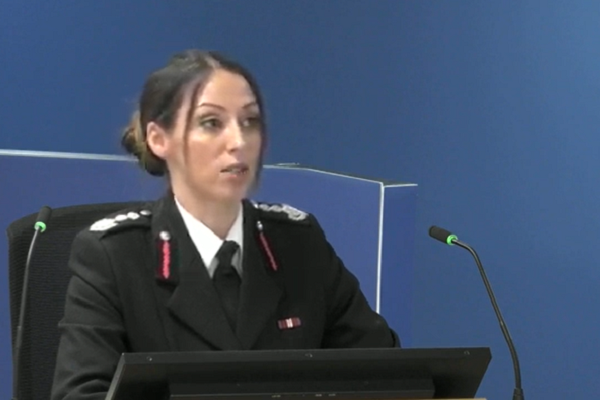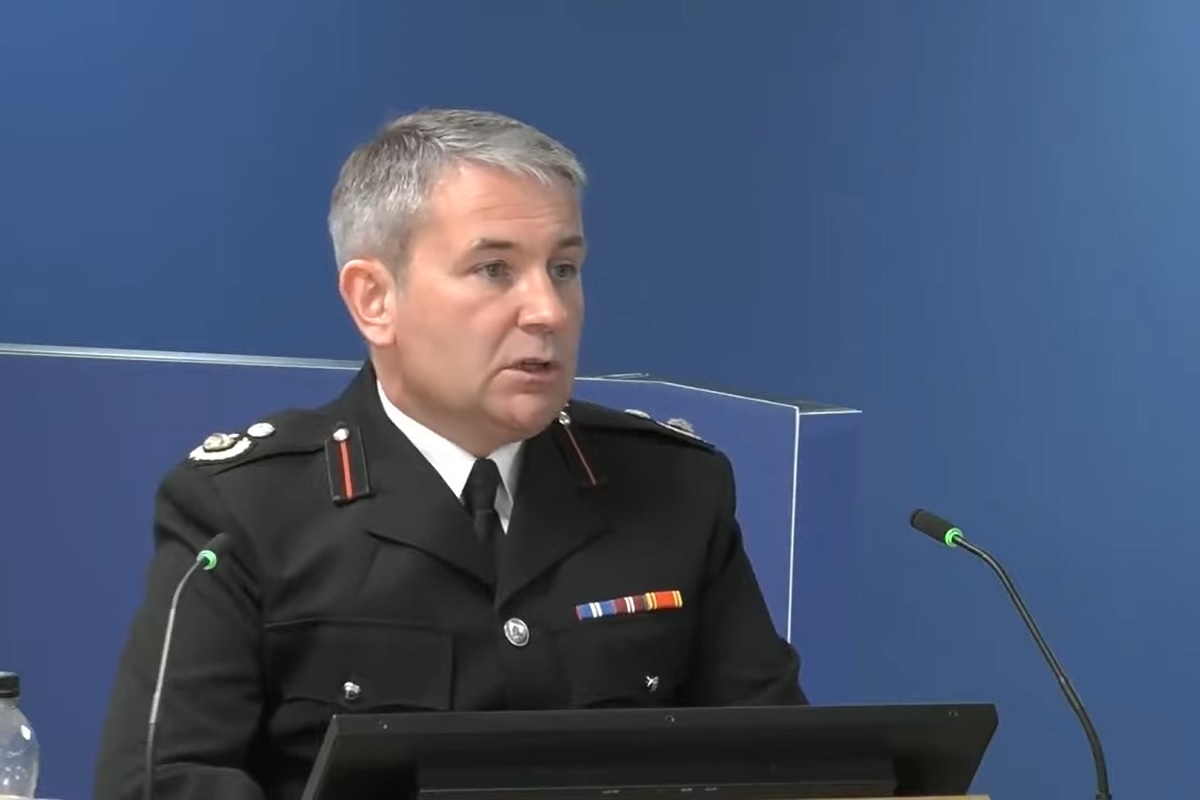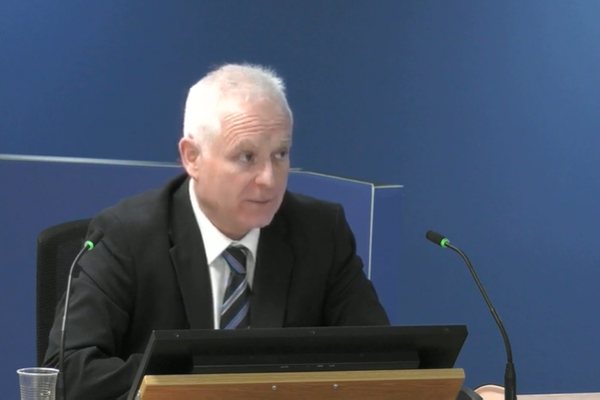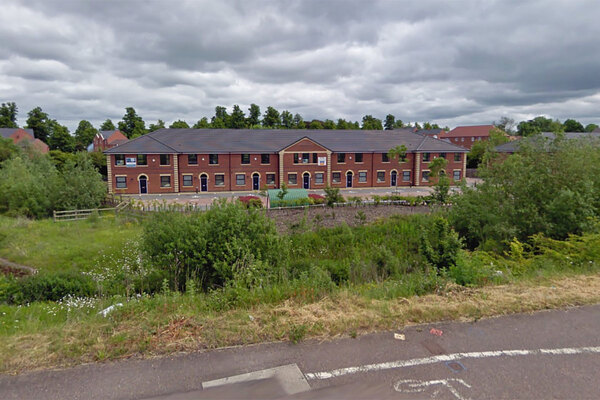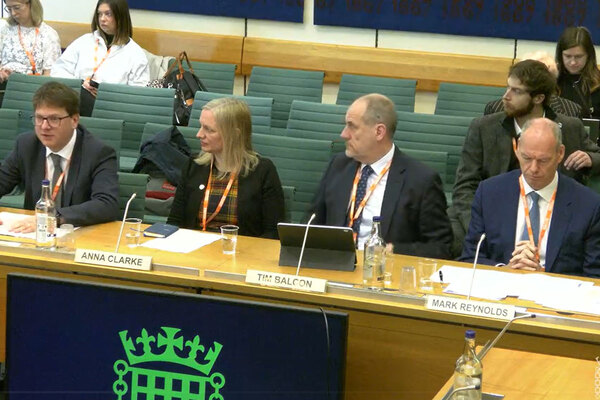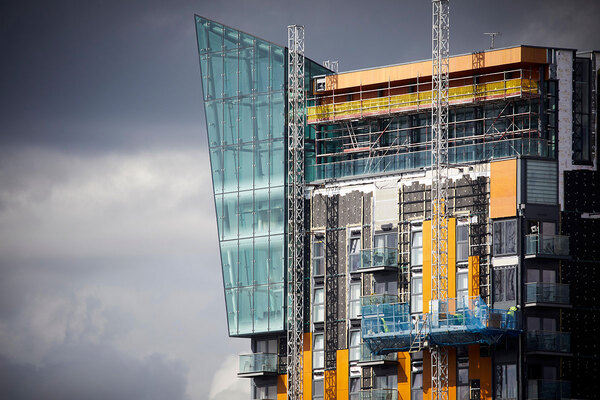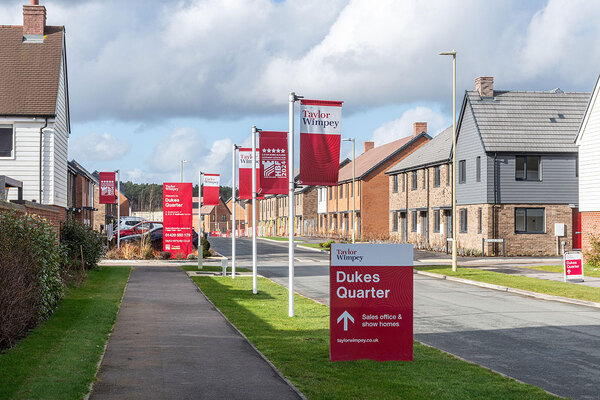LFB did not move to modern model for decision-making amid ‘very conservative culture’
The London Fire Brigade (LFB) opted not to move to more modern guidance for incident commanders on decision-making amid a “very conservative” culture that made it “very difficult to implement change”, a former senior officer has told the Grenfell Tower Inquiry.
Dr Sabrina Cohen-Hatton, the current chief fire officer at West Sussex Fire and Rescue and former deputy assistant commissioner at LFB, was today asked about a period in 2015 when the LFB was considering a move away from an existing ‘decision-making model’ to a more dynamic ‘decision control process’.
Dr Cohen-Hatton, who has a PhD in psychology alongside her long career in the fire service, had helped to develop national guidance on this switch, which was supposed to help commanders make better decisions during live incidents.
She had previously published research which found that decision-making during incidents relied on “intuitive processes” and that existing guidance was set up on the assumption that “options are considered, evaluated and activity is planned”.
As a result, national guidance published in summer 2015 encouraged fire authorities to adopt new policies that switched to the new methodology.
But a report prepared by the LFB in July 2015 branded the new guidance simply “a useful tool for selection and development” and said it “should not lead to wholesale changes in the [decision-making model] or other policies”.
Dr Cohen-Hatton disagreed, emailing colleagues to say that “should we deviate from this, it would undoubtedly leave us in a very vulnerable position should our commanders’ decisions be scrutinised following an incident”.
She then met with former assistant commissioner Dany Cotton (who later went on to lead the brigade at the time of the Grenfell Tower fire) but was told the LFB did not plan to adopt the new model.
“Ultimately, I was told that the London Fire Brigade didn’t intend to depart from the use of the [decision management model],” Dr Cohen-Hatton told the inquiry today. “I was surprised and disappointed, which is why I responded to try to clarify those points.”
Asked if Ms Cotton explained this decision, Dr Cohen-Hatton said: “Only that there needed to be enough of a business reason to move away from it to justify the effort… She also mentioned that she thought it might adversely impact people with neurodiversity such as dyslexia.”
Dr Cohen-Hatton added that Ms Cotton did not have “any research of empirical basis” for this claim about dyslexia but that she had simply “shown it to a colleague who had dyslexia, who, on first presentation of it, found it confusing”.
She added that research suggested that “having some kind of scaffolding to support a decision-making process would actually be beneficial, as opposed to inhibitory” to people with dyslexia.
Further emails from May 2017 showed that some principles of the new system had been adopted, but within the framework of the prior system, which Dr Cohen-Hatton called “overly complex”.
“I think there are complexities with the structure in London Fire Brigade that can make it more difficult to implement change,” she said.
She said a structure that required “approval and agreement from a broad range of people who might all have responsibility for a small component of that change” was a part of this.
“There is a culture in London [Fire Brigade] that is very conservative,” she added. “And I think there is great comfort in what is familiar, because it’s seen as tried and tested. [But] if you always do what you’ve always done, you’ll always get what you’ve always got.”
Richard Millett QC, counsel to the inquiry, asked: “Was there anything special about London that would justify this kind of exceptionalism when it came to the decision-making model?”
“No, not that I could reasonably propose,” replied Dr Cohen-Hatton.
This phase of the inquiry is examining the actions of the LFB in the years building up to the Grenfell Tower fire.
It has previously concluded that training did not prepare the incident commanders who took over the Grenfell Tower incident for the circumstances they faced, and that if they made the decision to evacuate the tower earlier, “many more lives” could have been saved.
Instead, the inquiry has said, the brigade stuck to the general ‘stay put’ policy as “an article of faith”, with residents continued to advise to stay in the building until at least 2.47am, when fire had spread up and around the tower and the lobbies and stairwells were filled with smoke.
The inquiry continues.
Sign up for our weekly Grenfell Inquiry newsletter
Each week we send out a newsletter rounding up the key news from the Grenfell Inquiry, along with the headlines from the week
Already have an account? Click here to manage your newsletters
